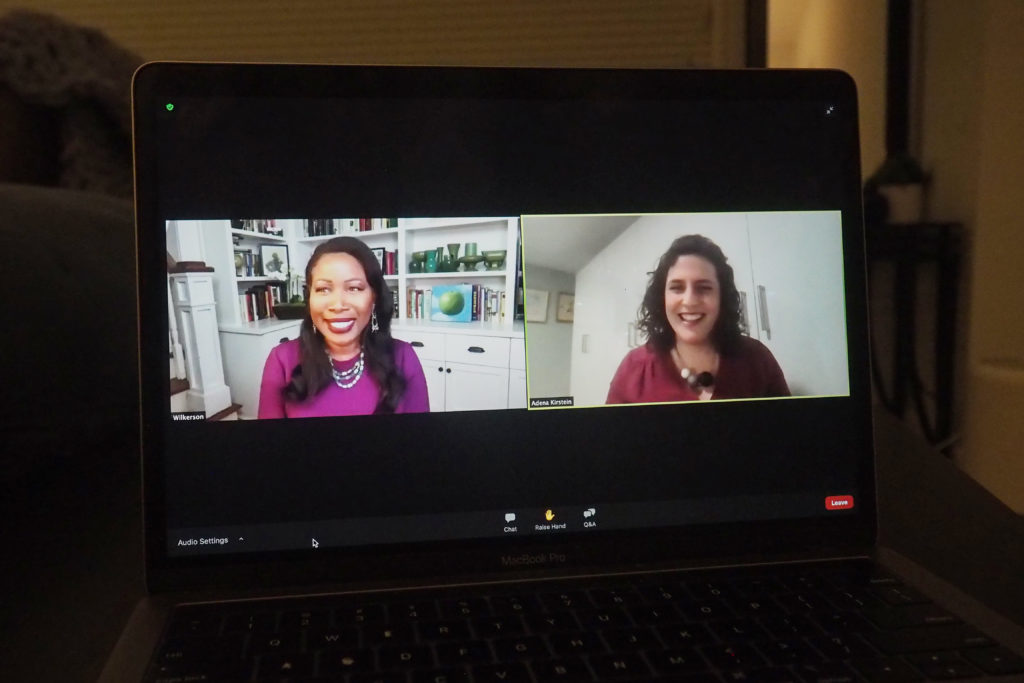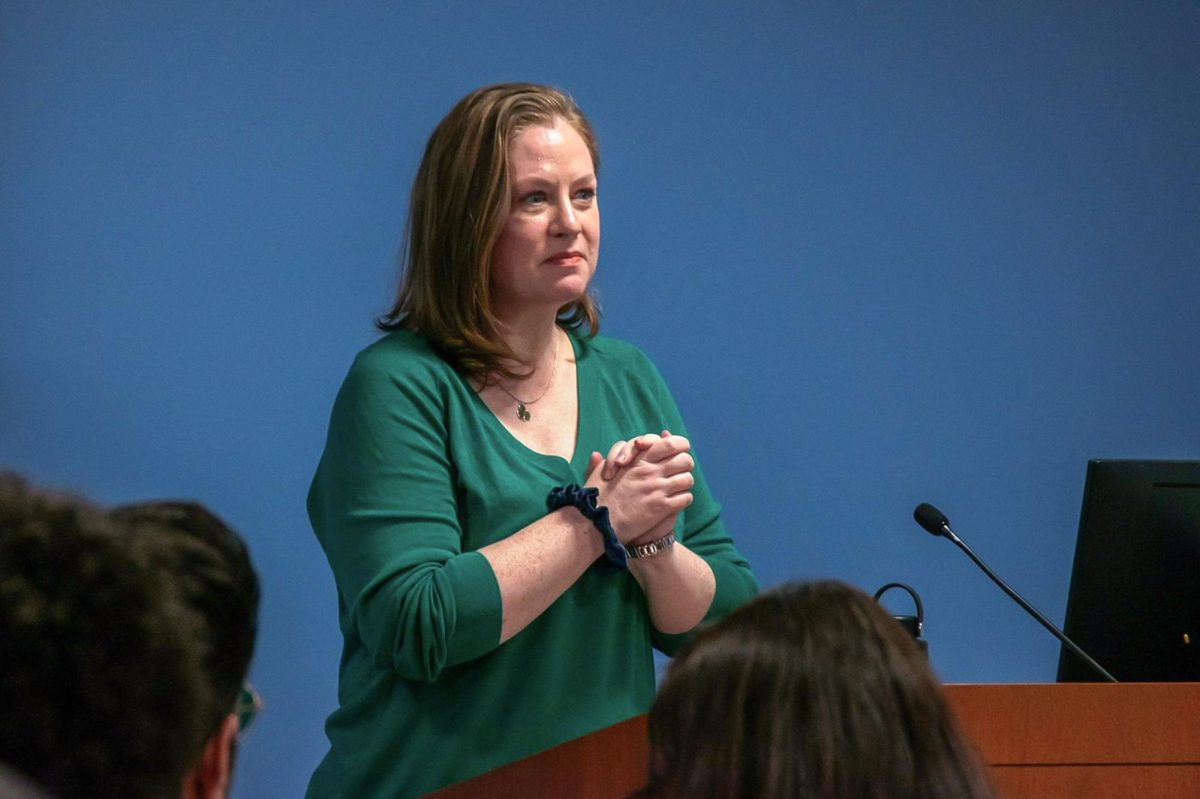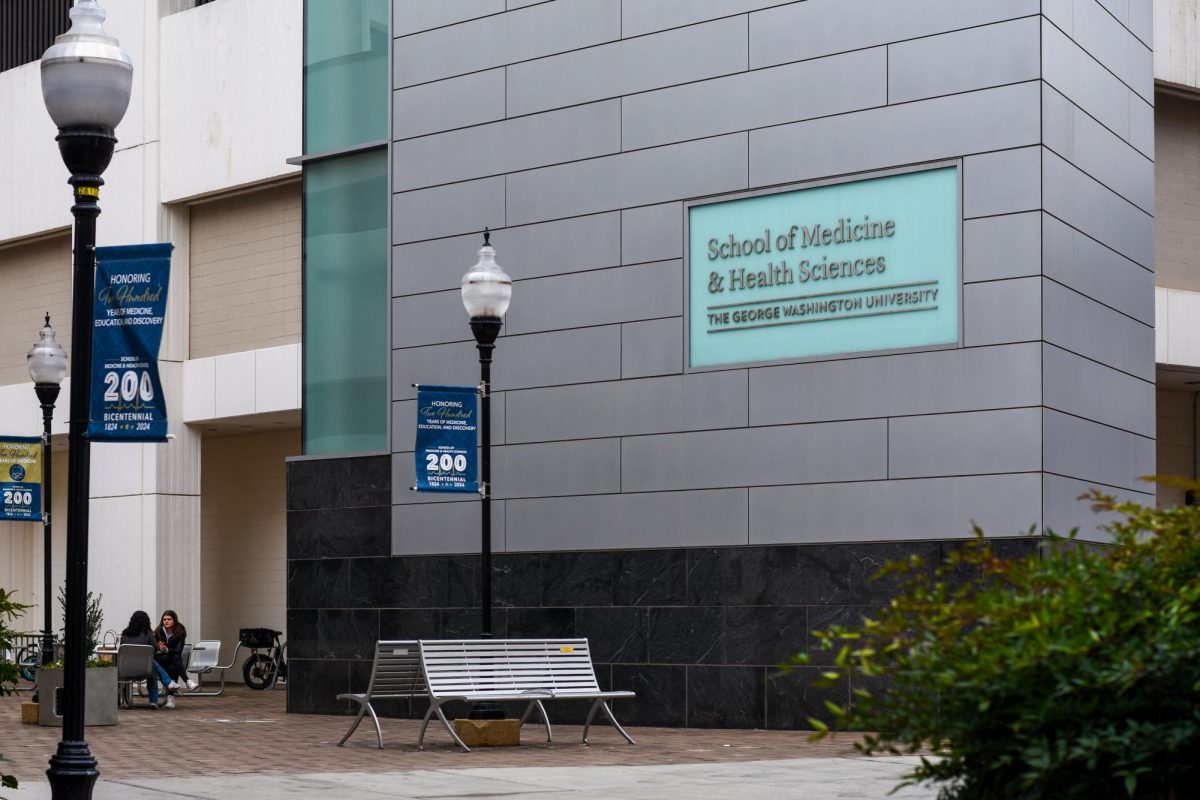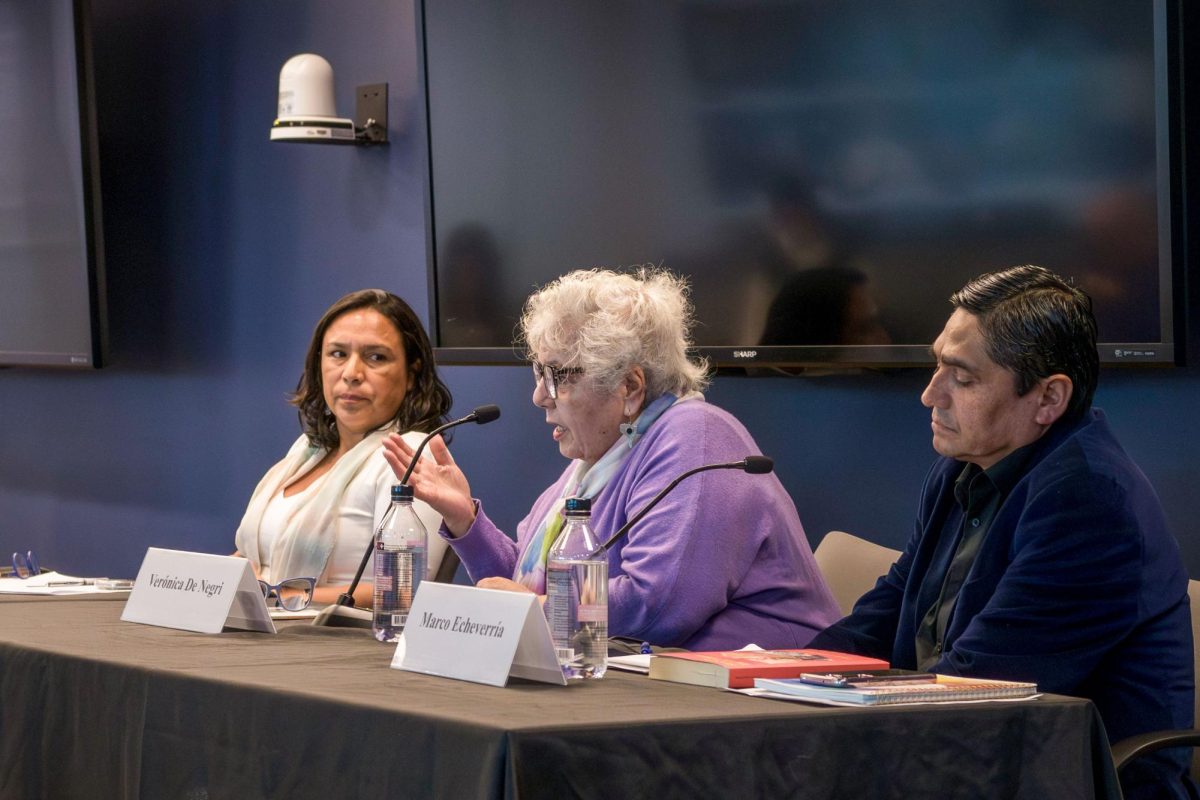A Pulitzer Prize-winning journalist spoke about recognizing caste systems and their impact on injustice and discrimination in modern society Wednesday.
Isabel Wilkerson discussed the significance of caste systems both past and present, in her New York Times best-selling book, “Caste: The Origins of Our Discontents.” Adena Kirstein, the executive director of GW Hillel, moderated the Q&A, which was hosted by the Multicultural Greek Council, National Pan-Hellenic Council, Panhellenic Association, the Columbian College of Arts and Sciences and the Division for Student Affairs.
Wilkerson said her first book, “The Warmth of Other Suns: The Epic Story of America’s Great Migration,” was her attempt to “recreate” the era of the Jim Crow South, where she came across the “language of caste.” She said her second book, “Caste: The Origins of Our Discontents,” came right after her first, when she realized it had to be written following the killing of Trayvon Martin in 2012.
“Caste is the term that I used to describe the power relationships, the artificial graded ranking of human value that emerged and was strictly enforced there, and that was what sort of captured the totality and the life and death experience for people, so that’s how I came to the word,” she said.
She said she did not plan for either of her books to take as long as they did to write, the first taking 15 years and the second taking 10 years, but she had “always gravitated” toward taking more time to go more “deeper” in her writing, whether at The New York Times or for her own works, she said.
“I believe work that you’re really devoted to and that is trying to reach an audience and tell a story and create something beautiful is a form of art,” Wilkerson said. “And you know they say that art is abandoned, never completed.”
Wilkerson said while caste is not a new term or idea, as it dates back to enslavement in the context of America, the idea has not made “inroads” into the daily thinking of average Americans.
She said Americans have seen events like the mass murders of slaves to police brutality to the U.S. Capitol riot, pointing out how all of them represent how trends in history have led to action in response, a notion that she said her book explains. She said looking back at the state of the caste system throughout history can help with understanding how the system manifests itself today.
“I think [historic events] call upon us to wake up to what is going on,” Wilkerson said. “And it’s a call to action because we have to go back to 1876 to see what were the points at which the politics reached a level at which the country was having to wrestle with this kind of divide.”
She said when the names of victims of police brutality have been circulated around communities, she found “the language of caste” helped provide language to people not “accustomed” to inequality as a way to think about the “hierarchy” of American society. These dialogues of discussing castes with one another allow people to take a look at an “artificial” ranking of human value that has been inherited in ways that they are not conscious of, Wilkerson said.
“It’s tragic how we lag on basic metrics of well-being, and there’s no reason for that because we have the technology, presumably the knowledge, and we should have the wisdom in order to be able push past that,” she said.








